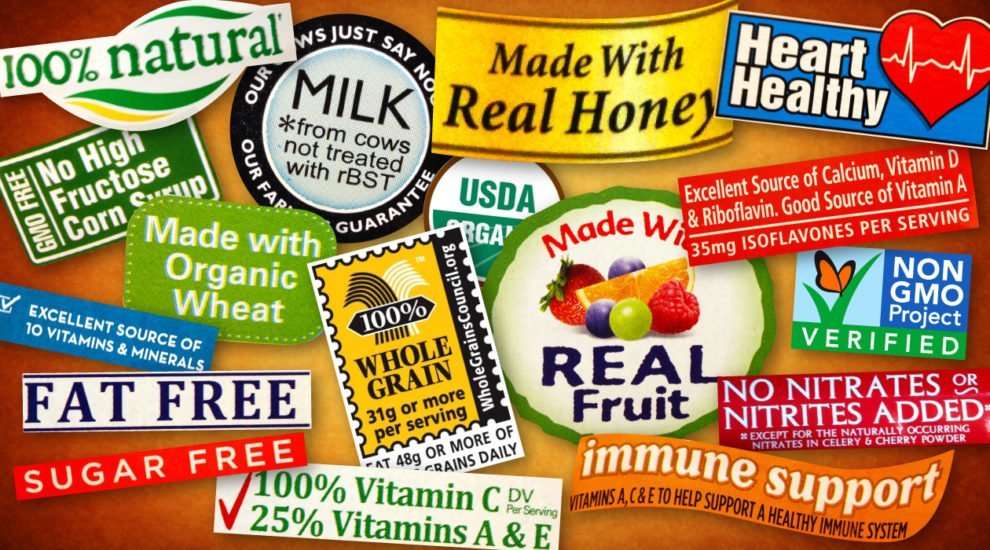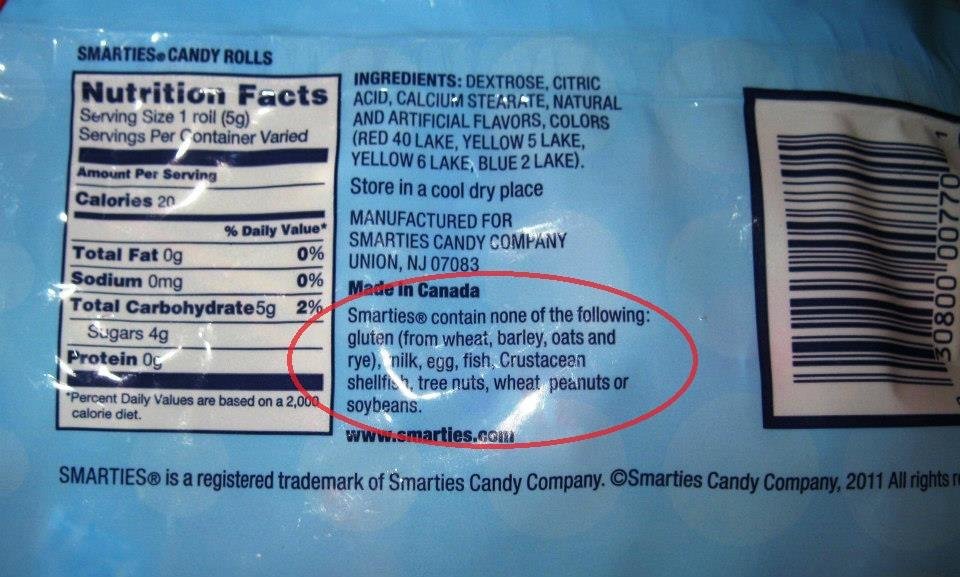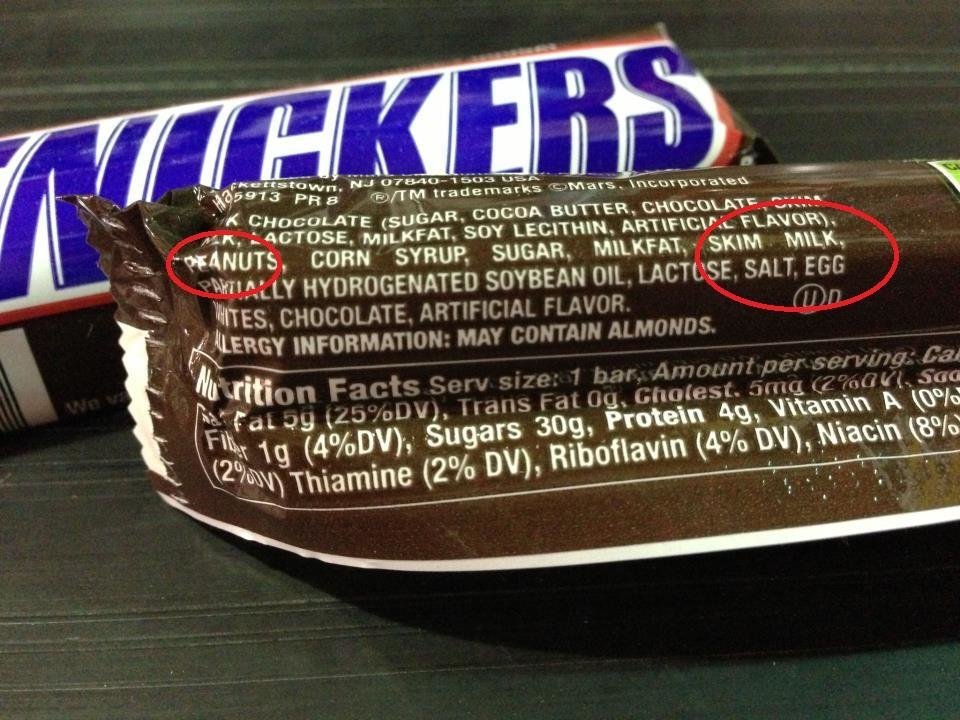
American Trade Association and Canada in Disagreements over Food Labeling

The practice of including warning tags on grocery containers was initiated by Chile, and now, Canada has decided to take up the policy as well, as the number 2 country with the high-earning capability.
In reality, the issue of obesity is a menace in every part of the world, yet the solution to wipe it off remains unknown.
Meanwhile, Chile has launched unique and innovative guideline experiments on obesity, and health professionals are looking for ways to refashion tags that give information on nutrition. Rather than memorising figures and percentage volumes that are pasted at the rear of containers, the government of Chile is demanding that tags written in symbols that connote warning should be pasted at the forepart of the food containers, and such foods are those with a lot of calories, sugar, salt, and soggy fat.
In Canada, about 27% of its grown-ups are battling with obesity, so the government is ready to take a step. In the meantime, Mexico has labeled diabetes, obesity, and having excess weight as general health risk conditions, and it’s courting the idea of doing the same thing that Chile is doing.

The US trade association is determined to impede Mexican and Canadian efforts on nutritional labelings through prolonging NAFTA negotiation.
The US moves to stop its fruition
However, if the trade officials in America achieve their plans, then these latest methods may not materialize both in Canada and Mexico.
Going by the information that was secretly obtained from one document, the trade officials in the US are planning to cancel guidelines on general food tags in the three countries; US; Canada, and Mexico, by using the negotiation of NAFTA.
This basically means that the US wants to introduce a regulation on packaged groceries and zero-alcoholic drinks that says the concerned countries that are part of the commercial deal must avoid the adoption of placing warning signs at the forepart of containers which improperly indicate that there are risks involved when such particular products are consumed.
Last Wednesday, during a meeting of the committee on House Ways and Means, which was based on the plans of the US trade, the trade delegate from America, Robert Lighthizer, stated that the proposed program is being vigorously processed by him, debating the fact that the regulations on national labeling of food are practicing protectionism.
On the other hand, the scientists in public health and legislators that are passionate about the matter, such as Lloyd Doggett from Texas, believed that the policy is like a hindrance to the efforts of combating obesity.

‘Alto en’ in Chilean language means ‘high,’ and that has been the official nutritional labeling from the country’s ministry of health
Back and forth arguments
He debated the issue with Lighthizer concerning the effects of public health in the new NAFTA discussions. He disagreed with the committee, saying that private companies such as Big Pharma & Obesity Lobby and Big Tobacco shouldn’t be permitted to undermine public health by these provisions.
Professionals in public health wish to give this knowledge to the customers of refined foods, and that is the fact that through research, it’s no doubt that diabetes and obesity are deeply connected to refined foods.
An example is an American food that is being shipped worldwide. This food depends mainly on refined products. New research which was carried out and published showed that from 2007 to 2012, close to 60% calorie consumption in the US were obtained from extremely processed products, and that also included fruit beverages, soda, candies, baked snacks, refrigerated foods, and bread made in large quantities.
Refined or processed products are the largest causes of excessive salt, fat, sugar, and calories intake in many homes. Foods that are prepared personally by families contain less of these elements. Officials of public health warned that the most notorious reasons behind endemic illnesses such as metabolic diseases and obesity are refined and artificial stored foods worldwide.
Chile launched its latest system of food symbols about two years ago, as a way to address the disturbing occurrence of obesity which was on the rise. The warning message placed on concentrated foods with salt, sugar, calories, and soggy fat is written in black color, and it reads ‘Alto en’.
Hoping to Decrease Obesity Numbers
On the other hand, the level of obesity cases in Canada has never stopped to increase, and that is why the government is finalizing the process of designing policies which are meant to resemble the Chilean cautionary symbols at the frontal part of packs.
Another side of the argument is what the food sector in America is insinuating, which is the fact that printing labels for warnings on foods is expensive, but this position was countered by health scientists, such as one researcher from North Carolina University, Shu Wen Ng. She’s been involved in examining the positive side effects of regulations to curb obesity worldwide.
Shu Wen Ng explained that Mexican policy on food packaging requires that labels should be written in the Spanish language, while Canada requires English and French languages. The scientist did not see how the issue of high costs in the productions of warning tags comes into the picture, or how that would affect trade negatively.

US trade association is desperately seeking ways to stop the warning tags on packages meals in Canada and Mexico
Meanwhile, Canada will publish its final policies before the end of the year, although we can’t tell if the country will regard the US’ strong opposition to the idea when it finally makes the decision.
However, the attempt by the US trade association to impede the cautionary symbol-based tag guidelines reminds one of what the Big Tobacco did a few years ago, when it tried to frustrate the purpose of regulatory health tags not to be put on packs of cigarettes by leveraging on the issues that faced trade at that time, according to David Hammond from Waterloo University, who also advises Canada about its recent guidelines on product labeling.
He added that these kinds of attempts were forfeited in countries when organizations such as the World Trade Organization confirmed that each country has the power to prioritize public health above every other thing.
More in Advisor
-
`
Will Bitcoin Crash to $0 or Hit $500K in a Decade?
Bitcoin’s future divides analysts into two extreme camps. Some see it becoming one of the most valuable financial assets in history....
October 12, 2025 -
`
Can Anyone Really Blame Mariah Carey for ‘Leaving’ the Real World?
Mariah Carey isn’t like the rest of us. From the moment she opens her mouth and that voice pours out, she...
October 10, 2025 -
`
Intel Invests in Nvidia, but Ratings Remain Unchanged
Intel’s stock jumped more than 30% after news broke that Nvidia poured $5 billion into the company. The rally sparked renewed...
October 5, 2025 -
`
Homeownership vs. Real Estate Investment: What’s Better?
Homeownership has long been seen as the American dream. But today, more people are asking: Is it really the smartest way...
October 3, 2025 -
`
Why the Armani Fashion Empire Is Set for an IPO
Giorgio Armani, one of the most iconic names in global fashion, left behind a detailed plan for the future of his...
September 27, 2025 -
`
Why Do Pokémon Cards Outperform the S&P 500 As an Investment?
Pokémon cards have outperformed the stock market by a mile. Since 2004, they have delivered a staggering 3,821% return, according to...
September 27, 2025 -
`
America’s Billionaires Get Older—Millennials Wait for Wealth Transfer
Many of today’s billionaires don’t match the youthful tech-founder image often portrayed. While names like Elon Musk, Sam Altman, and Mark...
September 21, 2025 -
`
Can President Trump Legally Fire Fed Governor Lisa Cook?
Lisa Cook is right in the middle of one of the most explosive legal battles in Washington. President Trump wants her...
September 20, 2025 -
`
Jeff Bezos’ Advice for Millennials Who Want Financial Success
Millennials today have grown up in a world where instant access to products and services is the norm. From two-day deliveries...
September 13, 2025















You must be logged in to post a comment Login